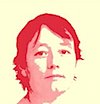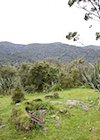 One of Hot Topic’s regular readers, the estimable Cindy Baxter, is in the Greenpeace team in Bonn keeping a weather eye on the latest round of negotiations to find a successor to the Kyoto Protocol. Here’s her first guest blog: an insider’s view of events so far.
One of Hot Topic’s regular readers, the estimable Cindy Baxter, is in the Greenpeace team in Bonn keeping a weather eye on the latest round of negotiations to find a successor to the Kyoto Protocol. Here’s her first guest blog: an insider’s view of events so far.
Bryan’s quoted Stern’s speech at length — I won’t bang on about it, but it’s still worth a mention. Stern’s not known for his charisma — the rumours going round here are that Obama’s speechwriter may have been involved. It was certainly in that league. Pressed all the right buttons.
After so many years of witnessing the Bush delegation’s wrecking ball, it was quite a moment to hear the US say: “You will not hear anyone on my team cast doubt upon or downplay the threat of global climate change. The science is clear, and the threat is real. The facts on the ground are outstripping the worst case scenarios. The costs of inaction—or inadequate actions—are unacceptable.”
It brought extended applause from the whole room; an audible sigh of relief. Some were in tears.
We Kiwis noted with glee the reference to anyone planning a high carbon economy being “losers” — wondering what Mr Brownlee thinks about that.
Yet on a more sober note, Waxman’s bill in Congress, released today, is a mixed bag. Sure, 7-8% by 2020 (at 1990 levels) is better than Obama’s 0% – but certainly nowhere near what we need from the US. The offsetting provisions (2bn US tons) would mean the fossil fuel industry could continue to pump out C02 for the next 20 years. But it’s early days and there may be another, better bill tabled before long.
Meanwhile back in Bonn, as Stern wowed his new fans, Bush’s former climate delegation leader Harlan Watson (originally recommended by ExxonMobil to work with the Bushies on climate) sat on the balcony of the plenary, headphones on, pretending he was typing. He’s here with a US congressional delegation, working for Republican sceptic Sensenbrenner. Why don’t I find that surprising?
He may have been coaching the OPECs. My top quote of the week so far was from Kuwait: “Let’s get real. We all need C02”.
Meanwhile the whole negotiations go along at a snail-like pace. Have they made progress? Not yet. Are they likely to? Debatable. The developed world’s focus seems to be on process – anything that means they can avoid the hard discussion on narrowing down the Chair’s proposal to resemble anything like the negotiating text that needs to be legally tabled by 17 June if we want to get a deal in Copenhagen.
The developing world is, meanwhile, still waiting for the action they were promised in – erm – 1992…
[Calexico]

